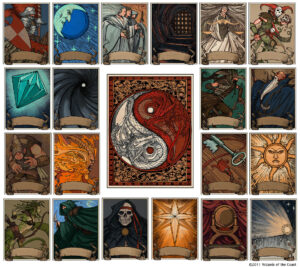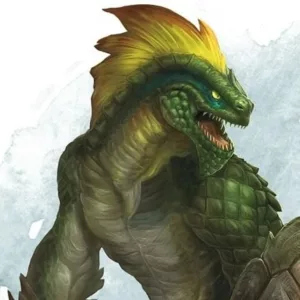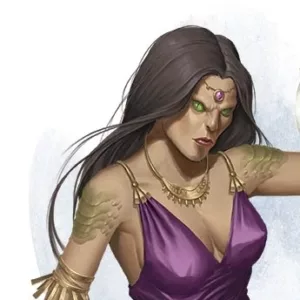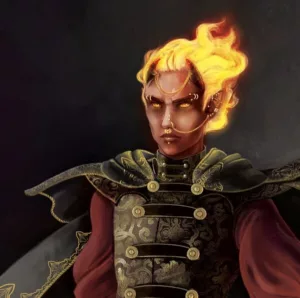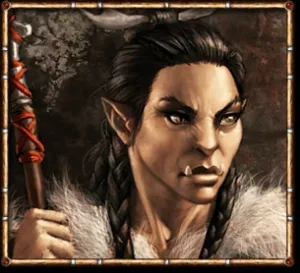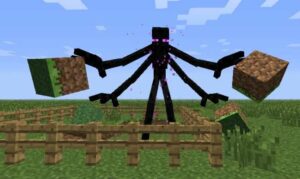
Twisting the Adventure with the Deck of Many Things
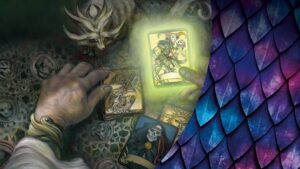
The Deck of Many Things is a legendary magical item in Dungeons & Dragons 5e. The mysterious deck is clearly defined in the Dungeon Master’s Guide rulebook as a deck frequently found inside a box or a carrying pouch that contains random magical cards with varying effects. Around seventy-five percent of all the decks scattered throughout the world have thirteen cards, and the rest have twenty-two. Each of the cards is unique and may or may not repeat in each deck.
Players who attempt to use the deck will obtain random magical effects depending on their drawn card. These magical effects differ for each card, with each having either a positive or negative effect on the player—or the players. This makes the d&d Deck of Many Things a fun addition in playthroughs to create newer twists and unpredictable campaign results.
Article summary:
- The Deck of Many Things is a legendary magical item in Dungeons & Dragons 5e that contains random magical cards with varying effects.
- Players who draw cards from the deck will obtain random magical effects depending on the card, which can be positive or negative.
- The Deck of Many Things appears in other tabletop and card games, such as Pathfinder and Magic the Gathering.
- In D&D, the addition of the deck in the game depends on the Dungeon Master.
- The deck is so powerful it can alter a lot of things in the course of the campaign, and is considered one of the most dangerous and powerful artifacts obtainable in D&D.
- The Deck of Many Things is a real game-changer in a playthrough and can provide a fun and unpredictable addition to the game.
- There are 13 cards in most decks, but some have 22.
- The cards include: Balance, Comet, Donjon, Euryale, The Fates, Flames, Fool, Gem, Idiot, Jester, Key, Knight, Moon, Rogue, Ruin, Skull, Star, Sun, Talons, Throne, Vizier, and Void.
Deck of Many Things Generator
-
Boruvo Hillshadow Male
-
Hulmarra Tallstag Female
-
Immith Greycastle Female
-
Kosef Anskuld Male
-
Shan Chien Male

Table of Contents
The Deck of Many Things also appears on different tabletop and card games such as Pathfinder and Magic the Gathering (MTG) respectively. In MTG however, the deck is a playable Legendary Artifact card. The same with the Deck of Many Things in Pathfinder and DnD, it holds surprises that can either be advantageous or not to the players. It gives four effects depending on the result on a 20-side die.
The Deck of Many Things in Campaign One: Vox Machina
The Campaign of Vox Machina from the web series Critical Role describes perfectly what players will experience when using the Deck of Many Things in a Dungeons & Dragon campaign. In their campaign, Grog Strongjaw, one of the character members of Vox Machina, was searching for exotic and strong weapons. Instead, he found an engraved box containing a leather sleeve. Inside the sleeve, he found a set of thirteen mysterious cards which he thought were useless to him. One of his companions, Vex, convinced him to keep the cards as she suspects that the card may be useful in the future. Just like any player, Grog’s curiosity beat him and he was tempted to draw a card. His first draw was a Euryale, a medusa card. He becomes permanently cursed with a -2 penalty on saving throws which can only be lifted by a god.
It took a while before Grog became curious again about the deck. He asked a drunkard to draw another card from the Deck of Many Things on his behalf. The drunk man draws a Moon card and was granted two wishes. Grog was surprised by the draw and had hoped to have the wishes for himself.
Grog decided to pull another card to celebrate his win over a lich god. Unfortunately, Grog pulled The Void card which contains a disastrous effect. His soul was sucked out from his body and imprisoned in an object of the DM’s liking. His physical body cannot move while his soul is kept imprisoned. This led the entire party to undergo a special task to search for Grog’s soul and save him from his imprisonment. Fortunately, Grog’s soul was found, and he was restored to his body. With the incidents that happened to Grog, the party decided to examine the deck and found out that it contains dangerous arcane energies within it. They decided to seal away the Deck of Many Things beneath the Platinum Sanctuary.
Using the Deck of Many Things in DnD
The addition of the deck in the game will depend on the Dungeon Master. Some hosts add the Deck of Many Things in the earlier parts of the campaign. This is to attract the players to gamble and use it as the story progresses. Since the effects obtained from the deck are random, players get surprised by the benefits or handicaps that they gained from using the deck.
In case the DM decided to include the deck in the campaign, should you use it? The quick answer is yes, and the longer answer is it depends. For new players, obtaining this deck is sort of a blessing and a curse. We highly suggest that new players try using the deck for experience and learning purposes. The deck will surprise you with its effect. It will be a good avenue to learn about it more and be creative on how you will progress in case a disadvantageous effect is granted on your character. But for veteran players who are focused on the storyline and campaign plot, the need for such a deck might be set aside.
How Powerful is the Deck of Many Things?
The Deck of Many Things is a real game-changer in a playthrough. As permitted by the DM, players have the chance to find and use the detect at their own risk. The deck is so powerful, it can alter a lot of things in the course of the campaign. Because of this, the Deck of Many Things is considered one of the most dangerous and powerful artifacts obtainable in D&D.
Below are a quick summary of the available cards and their corresponding effect on the players.
Balance | Alters the player’s alignment. Lawful becomes chaotic, good becomes evil, and vice versa. |
Comet | Boosts experience gain to a player who defeated a monster while under this effect alone. Otherwise, this card does not give any effect. |
Donjon | Entombs the player into an extradimensional sphere until he is found and removed from it. |
Euryale | Immediately grants a -2 penalty on saving throws permanently, unless removed by a god or the magic of The Fates card. |
The Fates | Erases any event as if it never happened. Can be used to reverse death or curses. |
Flames | Summons a powerful devil that will plague the player with misfortune until it attacks him. This effect will last until the player or the devil dies. |
Fool | The player loses 10,000 XP and is forced to draw a card again. |
Gem | A set of treasures appears in front of the player. |
Idiot | Permanently reduce the player’s intelligence by 1d4 + 1. |
Jester | The player can either gain 10,000 XP or draw two additional cards. |
Key | A rare or rarer magic weapon to which the player is proficient appears in their hands. |
Knight | Gains the service of a level 4 fighter. The fighter is controllable and lasts until it dies. |
Moon | Grants 1d3 wish times to the player. |
Rogue | A nonplayer character becomes an enemy which is unknown to the player. |
Ruin | All forms of possession and wealth of the player are removed. |
Skull | Summons an avatar of death to attack the player. The avatar will only disappear when killed. Any players who attempt to help you create a newer version of avatar to compete against them. |
Star | Increase one of the player’s ability scores by 2. |
Sun | The player gains 50,000 XP and a wondrous item appears in their hand. |
Talons | Every magic item the player wears and carry disintegrates. |
Throne | Gains proficiency in Persuasion Skills. Gains ownership of a small keep somewhere in the world. |
Vizier | Allows the player to ask one question in meditation and receive a truthful answer. The answer also helps resolve a puzzle or a dilemma. |
The Void | Captures the soul of the player and places it in an object decided by the DM. |
With the variety of effects that players can receive when using the deck, players and DMs are advised to take precautions in implementing it in a campaign. If the DM plans a very short campaign with a straight-to-the-point plot, the deck is most likely unnecessary. However, if the DM wishes to center the campaign on how the deck affects the players, then it is likely advisable to include it, especially in the early stages of the game.
On the other hand, participating players should be wary of using the deck. Try to work smartly with the team and decide who and when will the drawing occur. By luck, it would be a great advantage if a player draws a beneficial card. If in case the player draws bad cards, be prepared to undergo side missions to save your teammate. It is highly suggested that players are well-equipped and at around level 15 with a second class before trying to draw from the Deck of Many Things.

